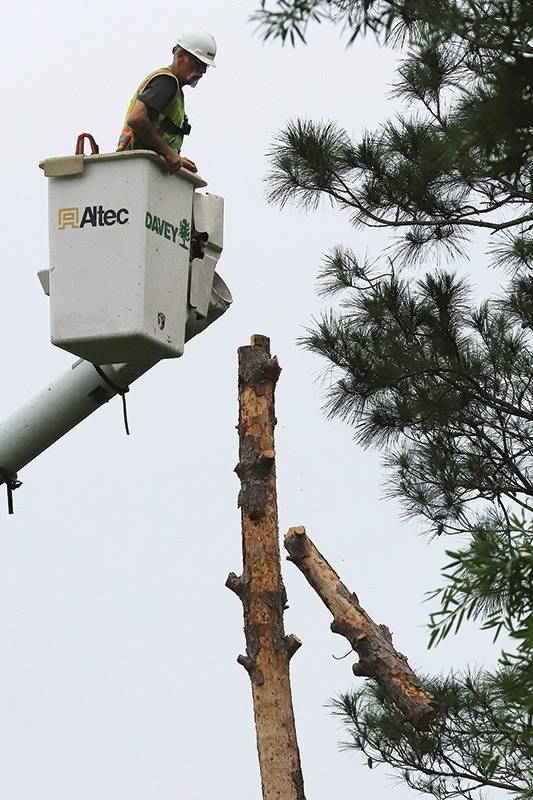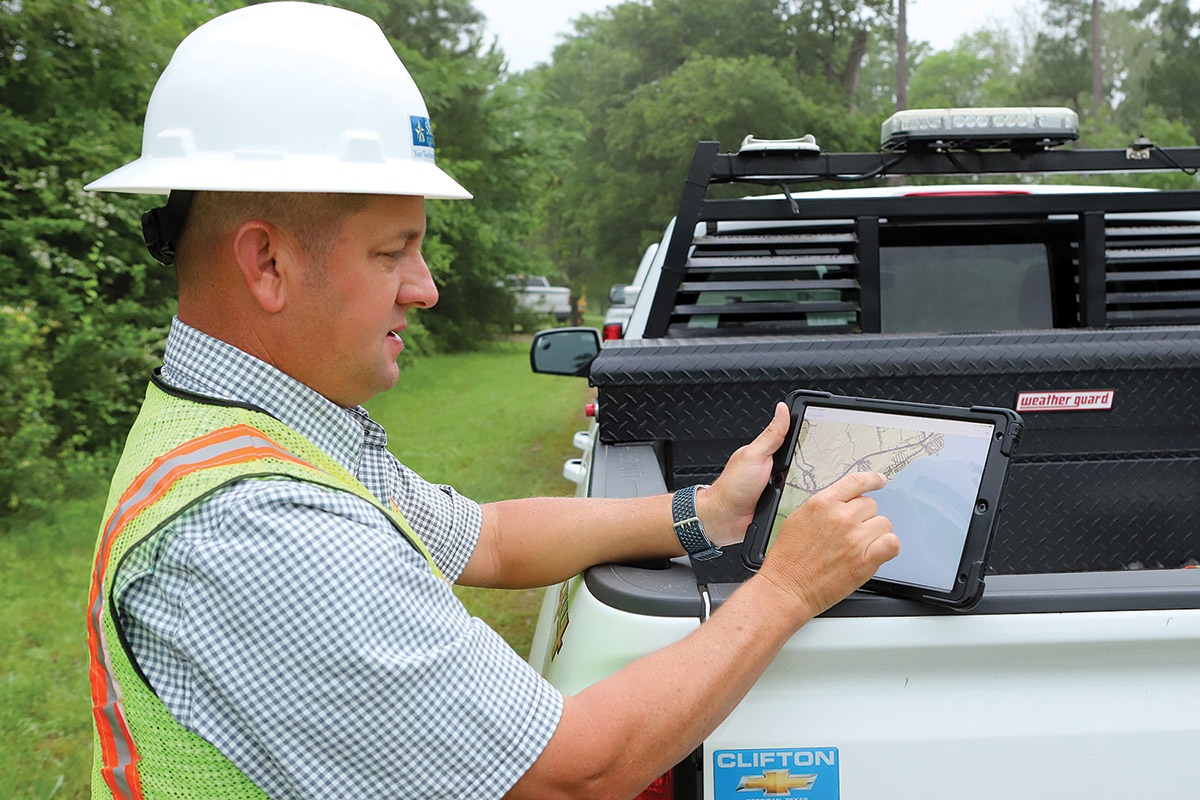Sam Houston Electric Cooperative has cut dead trees along its rights-of-way as part of the long-standing dead and hazard tree program, aimed at improving reliability across the Co-op’s more than 6,000 miles of power lines.
The program allows the Cooperative to cut down dead trees that, should they fall, would likely land on power lines, potentially causing outages or fires.
The Cooperative cut down more than 110,000 trees, primarily in Tyler County, starting in October 2011. The massive cutting project lasted through the winter and into the spring and summer months of 2012, several years after hurricanes Ike and Rita and the severe drought in 2011.
“Dead trees are the No. 1 cause of power outages in our heavily wooded part of Texas,” said Bill Townley, construction manager, in an article from 2011. “Our normal right-of-way maintenance program keeps the number of dead tree outages down, but due to the extreme conditions of the last six years, we are using additional resources to address the large number of dead trees that have the potential to cause power outages for our members.”
Sam Houston EC and the state of Texas are not currently experiencing the dire conditions of the dreadful drought in 2011. However, the Cooperative cut down approximately 7,500 trees in the past 12 months, according to Townley, to prevent potential fires.
The density of dead trees is low across the Cooperative’s service area right now. It is common for Sam Houston EC to cut down more than 15,000 dead trees in a year.
Members may request to have the Cooperative cut down hazardous trees at no expense, but the Co-op doesn’t only rely on members to identify potentially hazardous trees. Sam Houston EC contracts Janay Jones, a certified arborist with ACRT, to continually identify dead trees and mark them to be cut later.

Sam Houston Electric Cooperative
While East Texas hasn’t experienced a severe drought since that of nearly a decade ago, the Cooperative’s service area received record rainfall in 2017 and 2018. Such extreme rains can cause stress to trees, leading to their death, according to Jones. When pine trees are stressed by weather conditions, they become susceptible to beetles.
“Once beetles get into a tree, there is no coming back from them,” Jones said. “The needles will turn yellow, and that is how you know a pine tree is dead or dying.”
In early April, the Cooperative cut three young, dead pine trees from the property of consumer-member Bob Coleman, near Point Blank.
“This is a great service the Cooperative offers,” Coleman said. “This is really helpful and saves me a lot of money.”
According to Billy Snook, a utility designer, the Cooperative cuts down trees but won’t remove them for a member. “We will cut them into manageable pieces of 6–8 feet for the member, but the member is responsible for removing them or cutting them into firewood,” Snook said. “We will move them off a road if they fall there, but the member is responsible for anything more than that.”
Coleman requested the three trees be cut just low enough so, if they fall, they wouldn’t land on the power line providing electricity to his home. That kind of cut is referred to as a make-safe cut, Jones said.
Coleman wanted the trunks of the trees left for woodpeckers to use and for other animals and insects to inhabit. He allowed the manageable 6- to 8-foot portions to lie on the forest floor for opossums to use for habitation.
Following the morning of cutting, reliability and safety was improved on Coleman’s property—all without harming nature.


